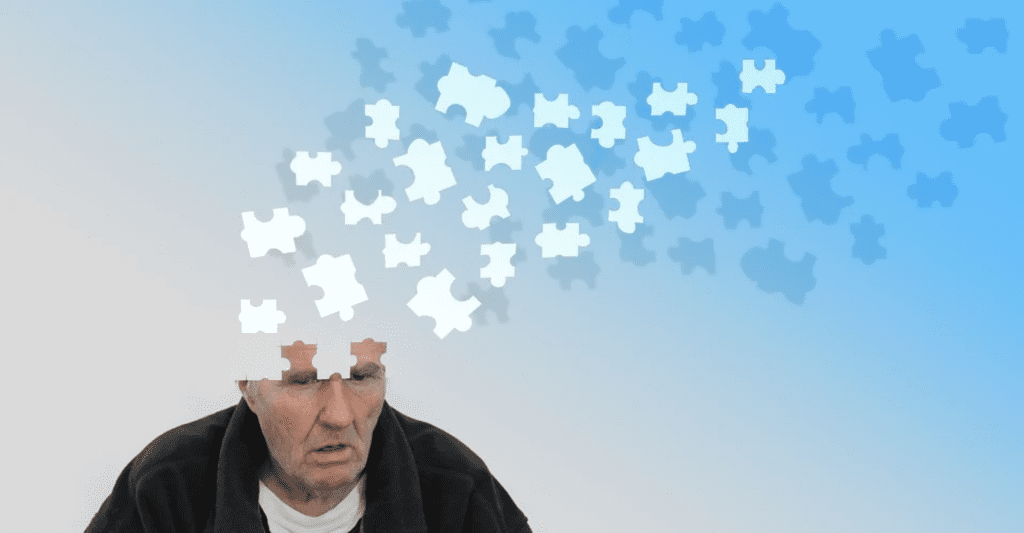Dementia is a chronic deterioration that occurs in the brain. Senility describes cognitive problems associated with aging but that can be associated with the onset of dementia.

What is Dementia?
Definition:
Dementia is defined as a chronic, unrelenting cognitive decline that takes place. There are different forms that dementia can take, including Alzheimer’s disease or subcortical and cortical dementia.
Symptoms:
The symptoms appear slowly over a period of time. The most noticeable sign is a loss of memory which may not be too bad at first. Often people may associate this with normal aging. An early sign is a loss, specifically, of short-term memory and then later behavioral and personality changes develop. Types of later symptoms may vary depending on the type of dementia, and in some situations the individual may become psychotic, paranoid and delusional, and have hallucinations.
Diagnosis:
Diagnosis is by a neurological test including a mental status test. Imaging of the brain and various laboratory tests may be done to diagnosis the type of dementia a person has.
Causes:
Dementia is caused by a disease of the brain or can be due to structural problems and events such as infections or subdural hematomas due to trauma. Illnesses such as neurosyphilis, Creutzfeldt-Jakob disease, Huntington’s disease or Parkinson’s disease can cause dementia.
Risk factors and complications:
The risk factor for most forms of dementia is age, with older adults at higher risk. Genetics can be important with a person who inherits Huntington’s disease, for instance, being at a high risk to develop the illness and associated dementia.
Prevention and treatment:
Prevention is difficult as scientists do not have enough knowledge on the causes of certain types of dementia. However, avoiding certain illnesses such as syphilis and keeping the vascular system healthy is a good strategy. This is because syphilis can spread to the brain and vascular dementia is a condition that can occur. Dementia cannot be cured but symptoms can be managed to some extent, for certain people, by using prescription medications.

What is Senility?
Definition:
Senility is an older word used to describe the general overall decline in a person’s physiology and physical and cognitive state when they age, which can indicate an early stage of dementia.
Symptoms:
Most often people who are senile become very forgetful. Some loss of memory is normal as people age due to brain changes, so minor senility may not indicate a pathological condition. However, if the memory loss becomes more pronounced over time, and is severe enough it may indicate that the individual has senile dementia, or Alzheimer’s disease.
Diagnosis:
Diagnosis is by a doctor doing a test of cognitive abilities and by tests, including imaging tests that can rule out other possible conditions.
Causes:
Some minor memory loss is a normal part of the aging process because the cortex of the brain becomes smaller as we age. However, in some people senility is senile dementia or Alzheimer’s disease. This is caused, scientists think, by genetic mutations that impact proteins in the brain.
Risk factors and complications:
Age is a risk factor for senility and is also when many types of dementia begin to first appear. Complications occur if the senility is indicative of dementia, in which case the prognosis is not good and the person will deteriorate.
Prevention and treatment:
Senility is difficult to prevent since to some extent brain shrinkage is part of aging. However, keeping healthy is a good first step to trying to prevent cognitive decline. Treatment may become necessary if a person is senile due to actual dementia.
Difference between Dementia and Senility?
Definition
Dementia can be defined as a medical problem in which there is cognitive decline that is chronic and becomes progressively more severe. Senility refers to a general decline in a person’s physiology, cognition, and physical state.
Symptoms
The symptoms of dementia include memory loss that worsens in time, delusions, paranoia, psychosis, and hallucinations. The symptoms of senility generally include forgetfulness that may or may not worsen significantly over time.
Diagnosis
Neurological exam, mental status tests and certain types of imaging tests can be used to diagnose dementia. A test of memory and general cognition can be done to diagnose senility.
General causes
There many causes of dementia including infections such as neurosyphilis or Creutzfeldt-Jakob disease; vascular problems, Alzheimer’s disease, and Lewy body dementia. Senility may be due partly to old age with slight changes a result of normal aging and brain shrinkage, but severe symptoms may indicate dementia and the associated causes of dementia.
Genetic factors
Specific types of dementia can be due to genetic mutations such as those that cause Huntington’s disease and Parkinson’s disease. No specific genetic mutations are associated with senility.
Table Comparing Dementia and Senility

Summary of Dementia Vs. Senility
- Dementia and senility can both appear as forgetfulness.
- Senility is an old-fashioned term that was used to also indicate dementia.
- Senility may or may not indicate dementia.
- Dementia is a severe form of senility that is progressive and worsens.
- Dementia is progressive and usually becomes worse over time.
- Dementia can take many forms including Alzheimer’s disease, but it can also occur with vascular problems or infections.
- Difference Between Rumination and Regurgitation - June 13, 2024
- Difference Between Pyelectasis and Hydronephrosis - June 4, 2024
- Difference Between Cellulitis and Erysipelas - June 1, 2024

